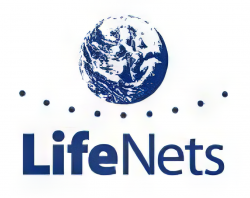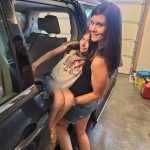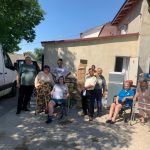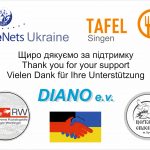About Us - LifeNets International
Bringing precious water to parched remote rural communities. Serving children with disabilities in the Chernobyl region. Providing life-changing scholarships in poverty-stricken areas. Building shelters and bringing internet connectivity to remote rural areas. These and many more highly targeted services represent typical activities of LifeNets International for more than 20 years. As a result of its unique focus – relieving suffering and generating hope through opportunities to become self-sufficient – the organization has had the privilege to help thousands of people.
Through LifeNets support and scholarships, people living in impoverished communities have become medical doctors, dentists, nurses and nurse practitioners, teachers, computer programmers, accountants, bankers, and more. A number of these communities have received LifeNets funds to drill boreholes to supply much-needed water. Others have purchased livestock and critical seed for planting.
Helping people to find a way to a more fulfilling and higher quality of life represents the driving force that led to the creation of LifeNets. What is today an organized outreach to people to Eastern Europe, Africa, Latin America, and Asia – all purposed to relieve suffering, create hope and develop opportunities – starting with helping victims of the Chernobyl nuclear disaster in Ukraine.
Reliving suffering of children afflicted by nuclear catastrophe
In 1996, Victor Kubik served as a translator for a humanitarian trip to the Kiev and Chernobyl region in the Ukraine. What he saw was heart-rending. Local hospitals were overflowing with children afflicted with Chernobyl-related symptoms, including thyroid cancer. Returning to the United States, Victor and his wife Beverly found ways to collect and ship tons of much-needed supplies to the stricken children of Chernobyl.
As people heard about these relief efforts, more wanted to help, including contributing funds. In November of 1999, Mr. Kubik set up LifeNets International as a formal non-profit organization, taking a name that reflected how the organization provided a “safety net” that relieved suffering and sustained life.
LifeNets expands operations
The new organization quickly expanded. Over time, more than 160 tons of supplies were solicited, assembled and shipped by volunteers, all for free through U.S. federal government programs. Shipments of supplies expanded from Ukraine to include shipments to Malawi, one of the poorest countries in the world.
Network grows in international areas
The influence and impact of LifeNets expanded further with the first U.S. visit of Dr. Vasyl Pasichnyk, director of the Ukrainian Revival Centre in 1999. LifeNets arranged for several visits to the Mayo Clinic and other hospitals that included interviews with area media in Indiana and Minnesota. A private visit with then-First Lady Judy O’Bannon resulted in LifeNets’ network being greatly expanded, as Mrs. Bannon, wife of then-Indiana Gov. Frank O’Bannon, personally invited Kubik to go on an official fact-finding tour of Russia with her and several business, academic, and civic leaders. That visit led to Kubik’s subsequent long-time involvement with Rotary International, which later provided grants and other support for vehicles and programs in international areas.
Other requests for humanitarian help poured in, and LifeNets programs expanded to Zambia in Africa, then to Latin America. More people started donating funds, and a number of major corporations like Bank of America, Shell Oil, and Microsoft started gift-matching the modest donations. LifeNets was purposely incorporated as a humanitarian organization so it could appropriately operate in global areas where a religious organization could be viewed with suspicion or outright banned.
As funds became available, LifeNets expanded its scholarships program in Africa, Eastern Europe, Latin America and Asia. LifeNets began supporting and sending volunteers to summer camps and other programs, including Sabbatarian groups. In addition to funding programs directly, LifeNets also organizes a considerable amount of in-kind donations, including specialty wheelchairs and other medical equipment. The LifeNets wheelchair program was even mentioned in USA Today.
A unique focus
Many humanitarian organizations provide funding, so LifeNets took a unique focus, which remains today. LifeNets strives to both relieve suffering and at the same time, create the means where local people can become more self-sufficient by learning new skills or using resources and tools (including seed and livestock) provided by LifeNets to build up lives. LifeNets focuses on these principles of operations:
- Meeting humanitarian needs to relieve suffering
- Generating hope through opportunities to become self-sufficient
- Serving on the basis of mutual respect, honor and dignity with both recipients of aid and with donors
- Delivering services through local leaders who are trusted contacts
- Being culturally sensitive in the type and amount of aid that is delivered
- Leveraging donations where possible by partnering with organizations who provide products at reduced costs
- Using wherever possible governmental services (such as the U.S. State and Defense Departments) to defray costs of shipping supplies
- Creating a circle of ongoing benefits, including creating the capacity for recipients to pass on aid, training, and services to others, teaching and emphasizing the ability to become living examples of “Passing on the Gift” to their communities
Today, LifeNets continues its unique focus. Formal LifeNets affiliates organizations have been established in Australia, Kenya, Malawi, South Africa, Ukraine and Zambia. The LifeNets board includes a CPA and other financial professionals, and as a certified 501 C 3 organization, LifeNets carefully adheres to standard accounting and reporting practices, including publishing IRS Form 990 on its website and is listed on GuideStar.
Board of Directors (June 6, 2024)
1. Beverly Kubik, Chairman and President, Whitestown IN
2. Libby Garrison, Noblesville, IN
3. Victor Kubik, Whitestown IN
4. Cathy McClure, Indianapolis, IN
5. Sue Peine, Indianapolis, IN
6. Michael Snyder, Indianapolis
7. Don Turgeon, Indianapolis, IN
For more information, visit https://lifenets.org/



